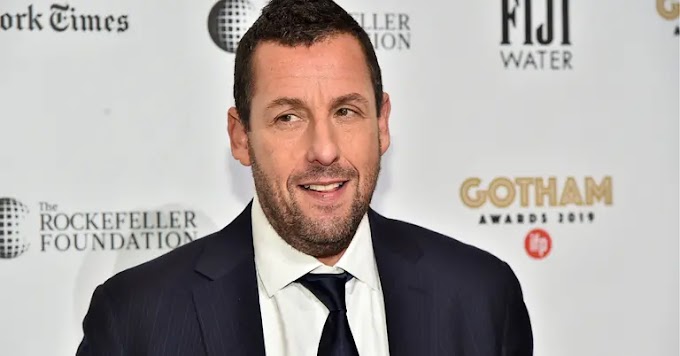.jpeg) |
| Tupac Shakur (Getty images) |
The long-running case of rapper Tupac Shakur's murder has taken a significant turn as US police charged former gang leader Duane "Keffe D" Davis with the crime. Shakur was shot four times in a drive-by attack in Las Vegas in 1996. The arrest of Davis, who was allegedly the mastermind behind the shooting, brings new hope for justice in a case that has captivated the public for years. Davis, a former leader of the South Side Compton Crips street gang, is said to have ordered Shakur's death in retaliation for a fight involving his nephew and the rapper in a casino. Despite the deaths of other direct conspirators or participants, Davis remains the "last man standing" in the case.
Speaking at a press conference, Las Vegas police officer Jason Johansson highlighted the persistence of the force in this investigation, stating that it has finally paid off. Johansson revealed that security camera footage from a hotel showed Orlando Anderson, Davis' nephew, being beaten by Shakur shortly before the shooting occurred. This incident is believed to have sparked the retaliatory attack on Shakur, who was waiting at a red light in his car. The investigation into the murder had been reviewed multiple times in the past due to its apparent gang-related nature, but it wasn't until 2018 that new information emerged, reigniting the case. Johansson also mentioned Davis's own admissions to media outlets about being in the vehicle where the shots were fired from.
Sheriff Kevin McMahill, visibly emotional at the press conference, acknowledged the family's long wait for justice. He dispelled any notion that Shakur's murder wasn't important to the police department and stressed their commitment to bringing those responsible to justice. McMahill expressed the Las Vegas Metropolitan Police Department's goal of holding accountable those responsible for Shakur's violent murder.
Tupac Shakur, also known as 2Pac, was a highly revered figure in hip-hop, with millions of records sold worldwide. His tragic death has inspired numerous documentaries, highlighting the impact he had on the music industry. Shakur's success extended beyond music, with roles in several films such as Juice and Poetic Justice. In recognition of his contributions, he received a posthumous star on the Hollywood Walk of Fame earlier this year. The arrest of Davis brings hope that justice will finally be served in the murder of this iconic artist.
Who is Tupac Shakur?
Tupac Shakur, also known by his stage name 2Pac, was an American rapper, poet, actor, and activist. Renowned for his raw and emotive lyrics, he remains as one of the most influential figures in the history of hip-hop. Born on June 16, 1971, in East Harlem, New York City, Shakur was tragically murdered at the peak of his career on September 13, 1996, in Las Vegas, Nevada. Despite his untimely death, Tupac left an indelible mark on society, shaping not only the rap genre but also sparking conversations about race, inequality, and social justice.
Tupac, the son of a former Black Panther Party member, grew up immersed in activism and political discussions. From an early age, he was exposed to the issues plaguing the African American community, which greatly influenced his music. His mother, Afeni Shakur, instilled in him a strong sense of identity and self-worth, teaching her son to use his voice to bring attention to societal injustices.
Shakur's musical career began in the late 1980s when he joined the hip-hop group Digital Underground as a backup dancer and rapper. His talent quickly caught the attention of industry professionals, leading to the release of his critically acclaimed debut album, "2Pacalypse Now," in 1991. With this album, Tupac established himself as a fearless rapper unafraid to tackle tough topics such as police brutality, systemic racism, and urban poverty.
Over the next few years, Tupac released a series of successful albums, including "Strictly 4 My N.I.G.G.A.Z." (1993) and "Me Against the World" (1995), which became the first rap album to top the Billboard 200 while its creator was in prison. Shakur's music resonated deeply with listeners who connected to his honesty, vulnerability, and ability to express the struggles and realities of their lives.
While Tupac experienced immense success as a musician, his personal life was marked by controversy. He was involved in several altercations and legal disputes, culminating in his imprisonment in 1995 for a sexual assault conviction. During his time behind bars, Shakur began to reflect on his life and aspirations, which led to a transformation in his music. He was determined to use his platform to promote unity and inspire social change.
Upon his release from prison, Tupac signed with Death Row Records, owned by Marion "Suge" Knight. The label released the iconic double-album "All Eyez on Me" in 1996, which catapulted Shakur to even greater stardom. He became a symbol of resistance, a voice for the voiceless, and a role model for many young people disillusioned with the system.
Tragically, at just 25 years old, Tupac's life was cut short in a drive-by shooting in Las Vegas. His death shocked the world, prompting an outpouring of grief from fans and fellow artists alike. Despite being gone for over two decades, Tupac's music continues to resonate with people around the globe. His posthumous releases, including "The Don Killuminati: The 7 Day Theory" and "R U Still Down? (Remember Me)," further cemented his status as a hip-hop legend.
Beyond his musical contributions, Tupac consistently used his platform to advocate for social justice. He spoke out against racial inequality, police brutality, and poverty, often drawing inspiration from his own experiences. Tupac's activism extended beyond his music, as he actively participated in community outreach efforts and formed friendships with prominent civil rights activists.
Tupac Shakur's legacy remains influential and multifaceted. He was inducted into the Rock and Roll Hall of Fame in 2017, posthumously proving his lasting impact on the music industry. Moreover, his life and struggles inspired a generation of artists to use their voices for change. Tupac's ability to bridge the gap between art and activism continues to inspire, leaving an indelible imprint on the world of entertainment and social justice.


.jpeg)




